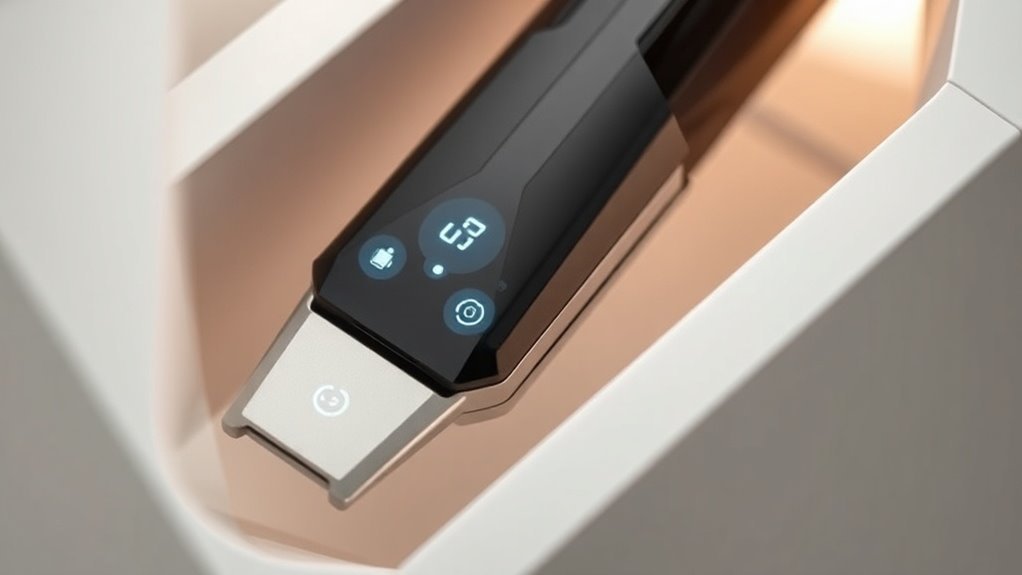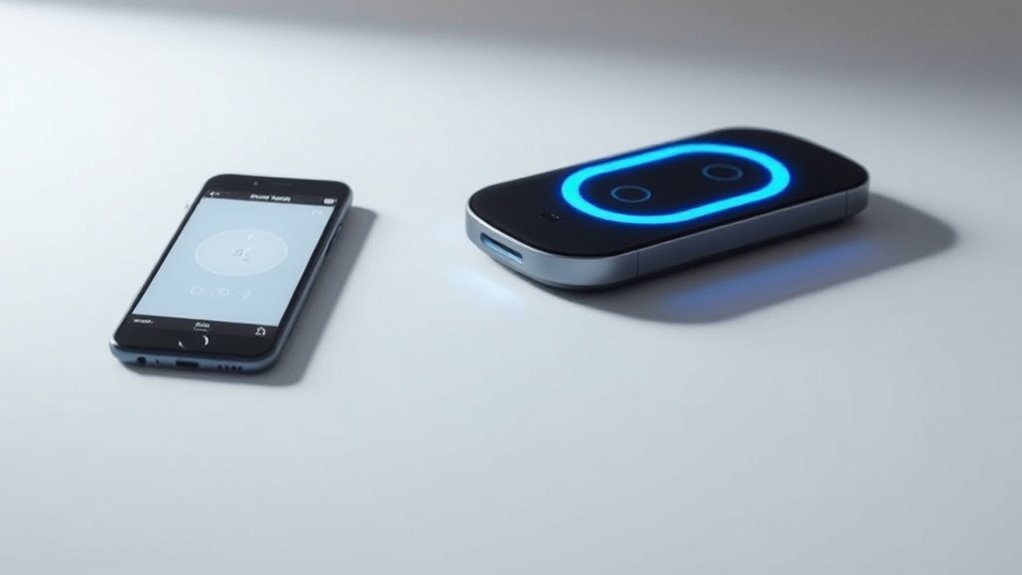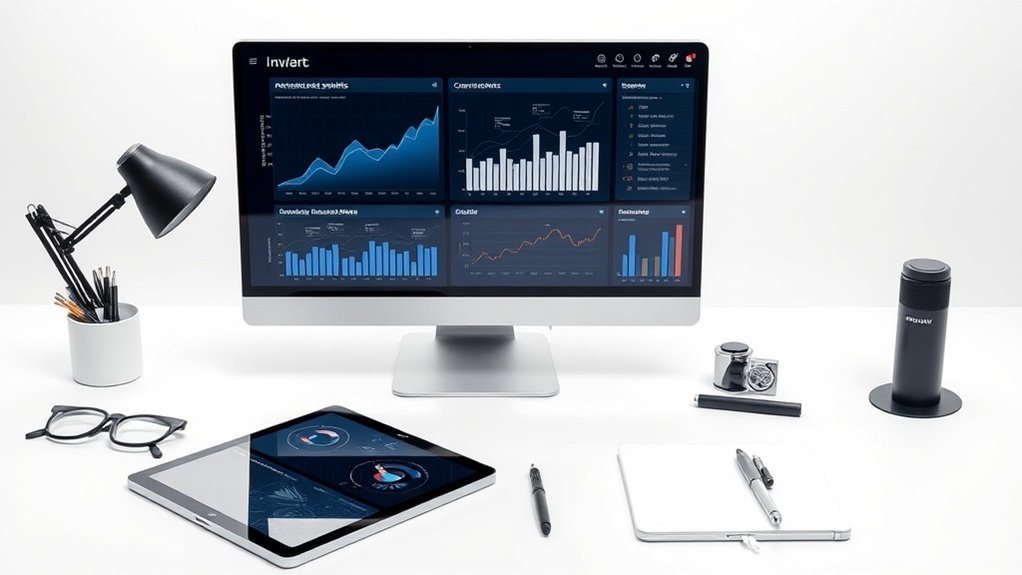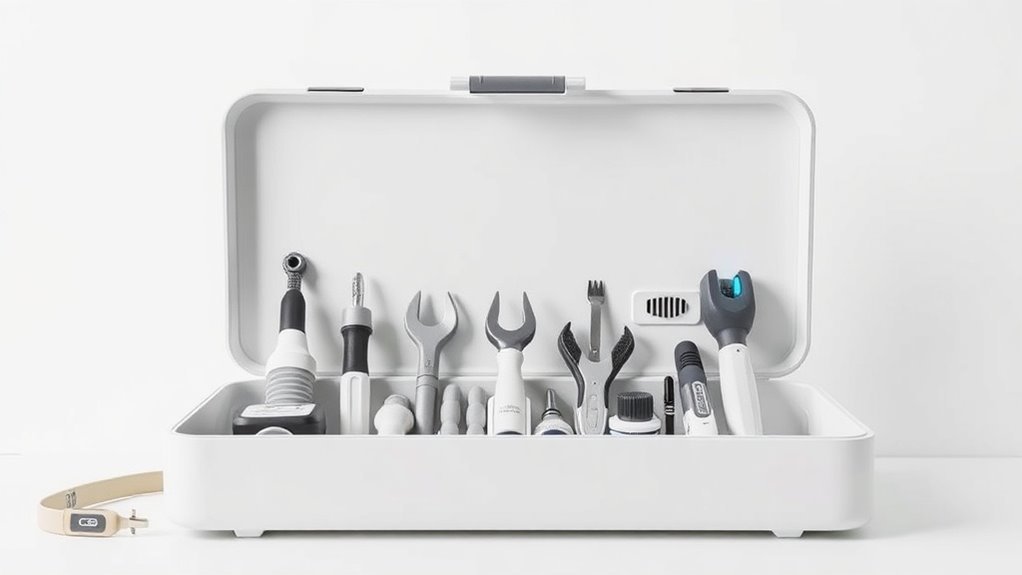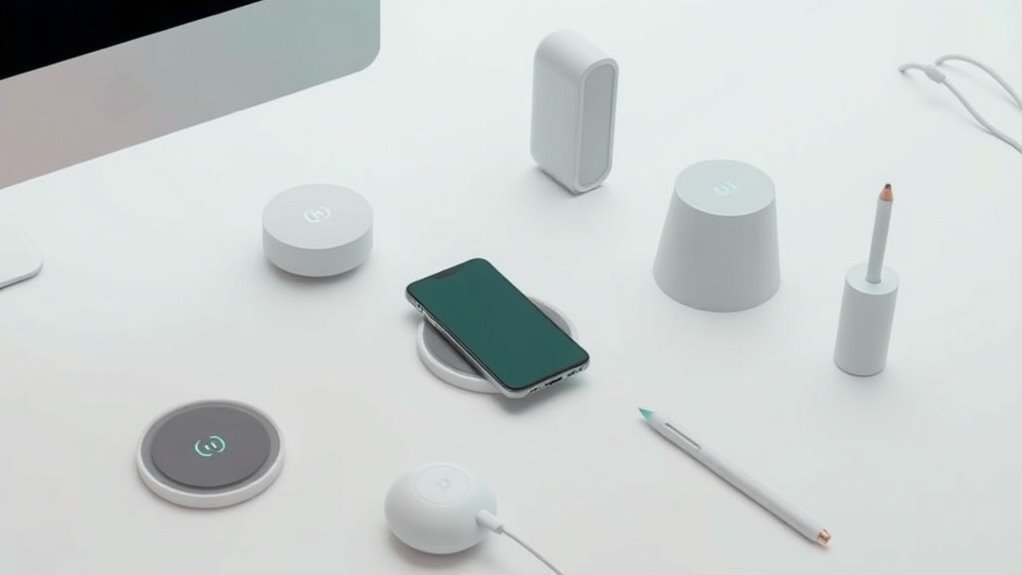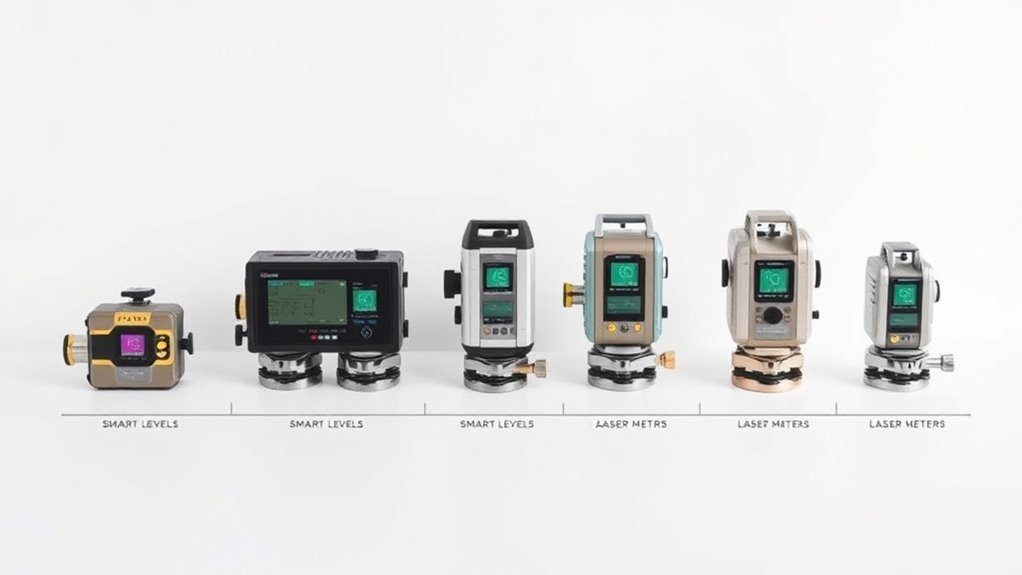Internet-Connected Tools: Benefits & Risks
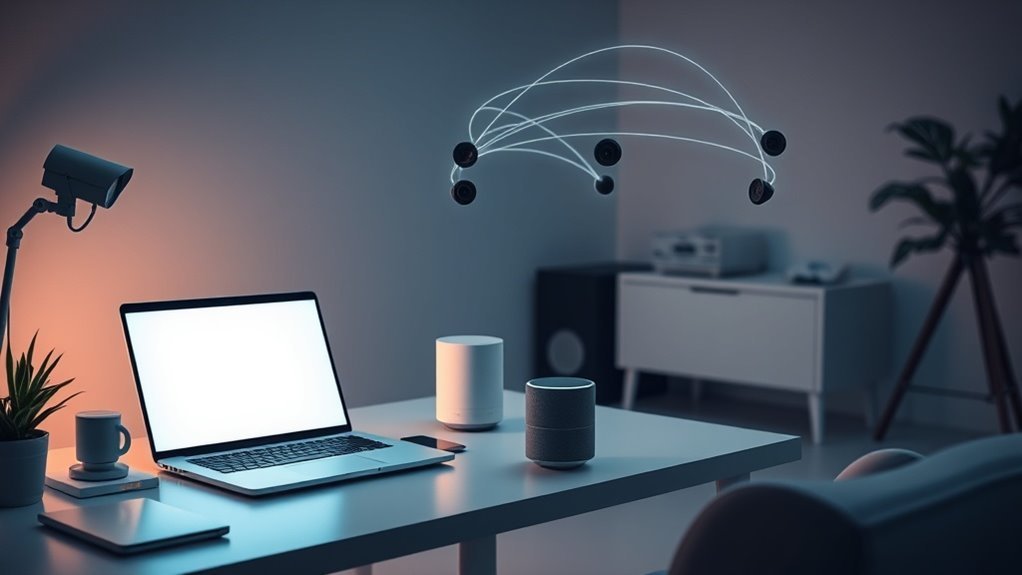
Internet-connected tools like smart home devices and wearables can greatly enhance your life by improving convenience and efficiency. They offer benefits such as automation, health monitoring, and energy savings. However, be aware of risks like privacy concerns and cybersecurity threats, as these devices can collect sensitive data and become targets for hackers. By understanding both the advantages and potential pitfalls, you can navigate this digital landscape wisely. There’s much more to explore about maximizing benefits while staying secure.
Key Takeaways
- Internet-connected tools enhance convenience and efficiency, automating tasks like controlling smart home devices or monitoring health data through wearables.
- These devices can improve energy efficiency and home security, leading to potential cost savings and enhanced peace of mind.
- Data privacy risks arise as personal information may be shared without consent, leaving users vulnerable to unauthorized access and surveillance.
- Cybersecurity threats, including hacking and malware, can compromise sensitive data stored on smart devices, emphasizing the need for strong security practices.
- Mindfulness in digital usage can mitigate negative mental health impacts, fostering healthier habits and prioritizing real-life interactions over screen time.
Understanding Internet-Connected Tools
As you navigate the modern digital landscape, understanding internet-connected tools becomes vital. These tools enhance your daily life, making tasks more efficient and bringing convenience to your home. From smart speakers to security cameras, they rely on internet connectivity to function and interact with each other.
You’ll find that many devices can learn from your habits, adapting their performance based on your preferences. However, you’re also entering a domain where data privacy and security concerns need your attention. Knowing how these tools communicate and store information is essential.
It’s not just about convenience; it’s about being informed. By understanding their functionalities, you can harness their benefits while minimizing potential risks. Stay aware, stay smart, and enjoy your connected world.
Advantages of Smart Home Devices

While you may initially see smart home devices as mere gadgets, they offer significant advantages that can transform your living space.
First, they enhance convenience with automation; imagine controlling your lights or thermostat with just your voice or smartphone. This saves you time and effort, allowing you to focus on what really matters.
Additionally, smart home devices can improve your home’s energy efficiency. By optimizing energy use, you’ll not only lower your bills but also contribute to a greener planet.
Security is another major benefit; you can monitor your home remotely through cameras and alerts, giving you peace of mind.
Benefits of Wearable Technology
Wearable technology offers you incredible benefits, especially when it comes to health monitoring and fitness tracking.
With devices that can track your heart rate, sleep patterns, and physical activity, you’ll have valuable insights into your well-being.
These tools empower you to make informed decisions about your health and fitness journey.
Health Monitoring Advantages
Health monitoring through wearable technology offers a range of advantages that can greatly enhance your wellness journey.
These devices allow you to track essential signs like heart rate, sleep quality, and even blood oxygen levels in real-time, giving you insights into your health like never before.
With this data at your fingertips, you can identify patterns, make informed choices, and catch potential health issues early.
Wearables can also motivate you to stay active and improve your overall lifestyle by setting personalized goals and reminders.
Plus, many devices can sync with apps, providing a thorough view of your health trends.
Enhanced Fitness Tracking
Tracking your fitness journey has never been easier thanks to the latest advancements in technology. Wearable devices like smartwatches and fitness trackers provide real-time feedback, helping you stay motivated and accountable. These tools can enhance your workouts considerably by offering insights tailored to your personal goals.
- Monitor heart rate and calories burned accurately
- Track daily steps and set achievable targets
- Analyze sleep patterns and improve recovery
- Join challenges and connect with friends for motivation
With these features at your fingertips, it’s easier to understand your body’s needs and make informed choices.
Embracing wearable technology can help you optimize your fitness regimen and lead a healthier lifestyle. So why not make the most of it?
Enhancements in Healthcare Monitoring
As technology advances, the landscape of healthcare monitoring is transforming dramatically. You’re now able to access real-time health data through wearable devices, which can track essential signs like heart rate and blood pressure.
These tools not only empower you to take charge of your health but also provide your healthcare providers with valuable insights. Telemedicine has become more accessible, allowing remote consultations and ensuring that you receive care without geographical barriers.
Additionally, mobile apps can help manage chronic conditions by reminding you to take medications or log symptoms. However, it’s important to be aware of potential privacy issues, as sharing sensitive information online can expose you to risks.
Improved Efficiency in Everyday Tasks
With the rise of internet-connected tools, daily tasks have never been easier to manage. You can automate routine chores, keep track of schedules, and enhance your productivity in ways you mightn’t have imagined.
The emergence of internet-connected tools transforms daily task management, allowing for automation and unprecedented productivity enhancements.
These tools help you save time and let you focus on what truly matters.
- Streamlined communication with smart devices
- Automated reminders for important tasks
- Instant access to information and resources
- Enhanced organization through digital calendars and apps
Risks to Personal Privacy
When you use internet-connected tools, you’re often sharing more personal data than you realize.
This data can lead to unauthorized access and raise concerns about surveillance.
Understanding these risks is essential for protecting your privacy in a digital world.
Data Collection Practices
Though many internet-connected tools offer convenience and efficiency, they often come with significant risks to personal privacy due to their data collection practices.
You’ll likely find that these devices gather vast amounts of data without you even realizing it, raising concerns about how your information is used.
- Your location can be tracked even when you’re not actively using the device.
- Personal preferences and habits are collected, often without your explicit consent.
- Data is sometimes shared with third parties, increasing the risk of misuse.
- You may have little control over the extent of data collected or how it’s stored.
It’s essential to stay informed and cautious about the data you provide to these tools, ensuring your privacy is protected.
Unauthorized Access Risks
As internet-connected tools become integral to daily life, unauthorized access to your personal data poses a growing threat to your privacy.
With smart devices collecting and sharing information, hackers can exploit vulnerabilities to steal sensitive data.
Whether it’s your smart speaker or fitness tracker, these tools sometimes store passwords, credit card details, or health information.
If someone gains access, they can misuse this data, leading to identity theft or financial loss.
Cybercriminals often employ tactics like phishing or malware to infiltrate your devices.
To protect yourself, always update software, use strong passwords, and enable two-factor authentication.
Surveillance Concerns
While the convenience of internet-connected tools enhances our lives, it also raises significant concerns about surveillance and personal privacy.
You mightn’t realize that the very devices you rely on can track your activities, leading to potential misuse of your data. Companies often collect and share your information, leaving you vulnerable to targeted ads and breaches.
- Your online footprint can reveal more than you think.
- Data collected can be used for profiling without your consent.
- Unauthorized surveillance can lead to a chilling effect on personal expression.
- Smart devices might listen to your conversations, compromising your privacy.
Awareness is essential.
Being mindful of the tools you choose can help you protect your personal space from prying eyes.
Cybersecurity Threats and Vulnerabilities
Although internet-connected tools offer numerous benefits, they also expose you to significant cybersecurity threats and vulnerabilities. These devices can become prime targets for hackers, putting your personal data at risk.
Internet-connected tools provide advantages but also pose serious cybersecurity risks, making personal data vulnerable to hackers.
Weak passwords, outdated firmware, and unprotected networks make it easier for cybercriminals to gain access to your sensitive information. Once compromised, your device can be used for malicious purposes, such as launching attacks or stealing data.
Additionally, the vast amount of data these tools generate can be exploited if not properly secured. It’s crucial to stay informed about potential threats and take proactive measures—like regularly updating software and utilizing strong passwords—to safeguard your privacy and protect yourself from cyber threats.
Don’t underestimate the importance of cybersecurity awareness in today’s digital landscape.
Impact on Mental Well-being
Internet-connected tools can markedly impact your mental well-being, often in ways you mightn’t immediately recognize.
While they offer incredible conveniences, they can also lead to stress and anxiety.
It’s crucial to be aware of the effects they might’ve on you:
- Social Comparison: Your constant exposure to curated lives can distort your self-image.
- Information Overload: An endless stream of notifications can leave you feeling overwhelmed and distracted.
- Reduced Face-to-Face Interaction: Increased screen time often means less meaningful in-person connections, which are essential for mental health.
- Sleep Disruption: Late-night usage can interfere with your sleep patterns, leading to fatigue and irritability.
Recognizing these aspects allows you to navigate your digital life more mindfully.
Best Practices for Safe Use of Connected Tools
To assure a positive experience with connected tools, it’s vital to adopt best practices that promote safety and well-being.
First, always adjust privacy settings to limit data sharing and control who can access your information. Regularly update your devices and apps to guarantee you’re protected against vulnerabilities.
Adjust privacy settings to protect your data, and keep devices updated to avoid vulnerabilities.
Consider using strong, unique passwords and enable two-factor authentication for added security. Be mindful of your screen time; set boundaries to promote healthier usage habits.
Engage critically with content and be discerning about what you consume. Finally, remember to disconnect periodically—real-life interactions and activities are essential for maintaining mental well-being.
Following these guidelines can help you enjoy the benefits of connected tools while minimizing risks.
Questions
How Do Internet-Connected Tools Affect Electricity Consumption in Homes?
Internet-connected tools can considerably increase your home’s electricity consumption. They often run continuously, using power for updates or connectivity. However, smart devices can also optimize energy use, potentially decreasing your overall electricity bills when managed properly.
Can Internet-Connected Tools Be Hacked Remotely?
Yes, internet-connected tools can be hacked remotely if they’re not properly secured. Weak passwords or outdated software make them vulnerable. It’s essential you regularly update security settings to protect your devices from potential threats.
What Data Do Smart Devices Typically Collect About Users?
Did you know that 70% of smart devices track your location? Smart devices typically collect data like usage habits, personal preferences, health information, and location, often compiling detailed profiles that advertisers and companies use to target you.
Are Privacy Laws Keeping up With Advancements in Connected Tools?
No, privacy laws aren’t fully keeping up with advancements in connected tools. You might find existing regulations lagging behind new technologies, leaving gaps in protections that could expose your data to potential misuse and breaches.
How to Recycle Old Internet-Connected Devices Safely?
To recycle old internet-connected devices safely, first wipe personal data, then check local e-waste programs for proper disposal. Many stores also offer recycling options, ensuring your devices are recycled responsibly and safely.
Conclusion
In today’s tech-savvy world, internet-connected tools can be a double-edged sword. While they offer incredible benefits like improved efficiency and healthcare monitoring, they also come with risks to your privacy and cybersecurity. It’s essential to strike a balance and stay informed to navigate this digital landscape. By being proactive and following best practices, you can enjoy the perks without falling prey to the downsides. Remember, it’s better to be safe than sorry!

